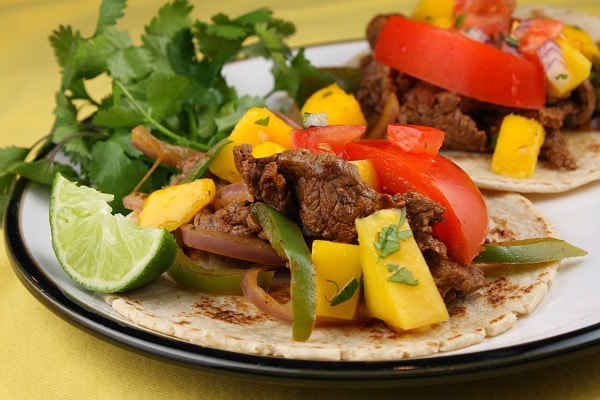Beef Fajitas with Mango Salsa are the perfect main dish Mexican meal to serve to family.
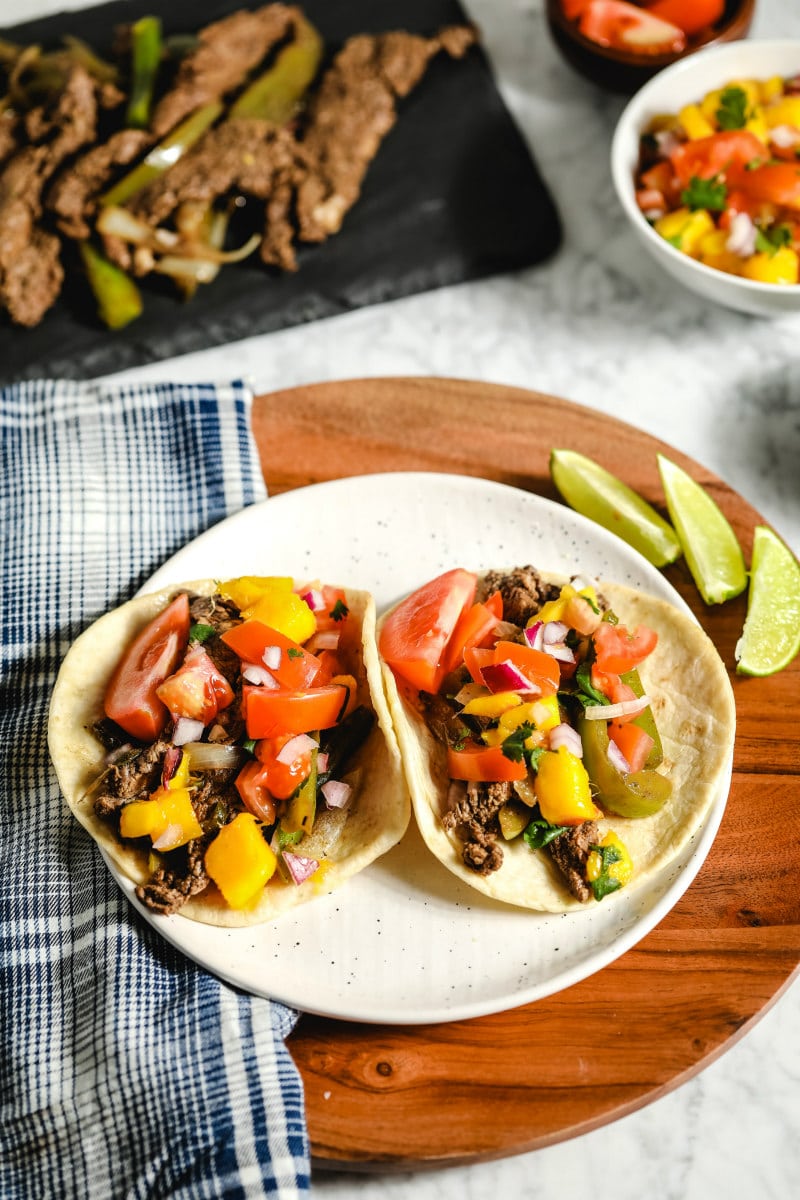
You don’t have to wait for Cinco de Mayo to enjoy these Beef Fajitas. We love Mexican food in our house any day of the week and any time of year. It’s on the menu at least once a week. Beef fajitas are easy to make from scratch. You eat them just like tacos– stuffed into tortillas with all of your favorite fixings.

How to make Mango Salsa:
Mango salsa is the salsa of choice here to pair with your beef fajitas. It’s a simple mix of fresh mango, tomato, red onion, cilantro, salt and lime juice. You’ll just combine those in a bowl and let the mango salsa sit while you make the fajitas.
If you don’t think you care for mango salsa (or if you prefer to buy your salsa), that’s okay too. Just make the beef fajitas and add your own toppings.
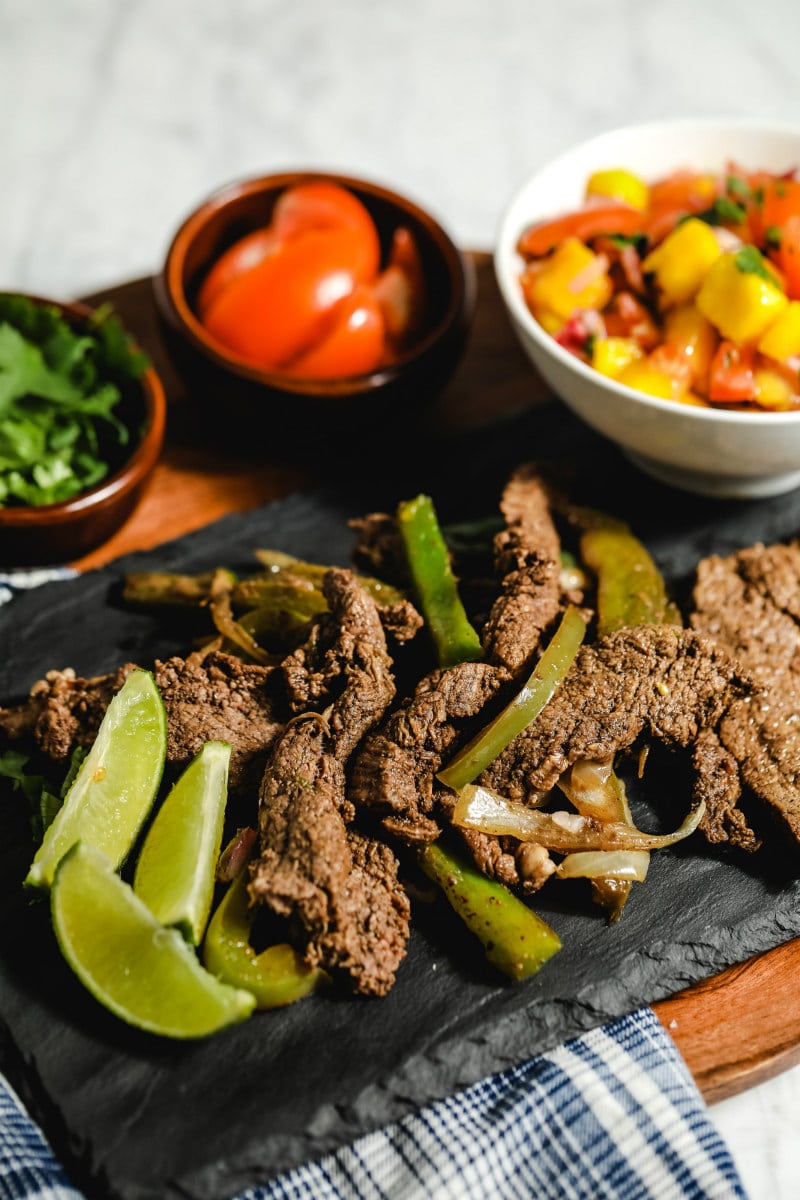
How to make Beef Fajitas:
This recipe is so easy because there is no marinating time! Just slice some flank steak thinly and combine it with chili powder, coriander and oregano. Then you’ll stir fry the seasoned steak with onion, bell pepper, jalapeño, Worcestershire sauce and salt. That’s it. Your fajita mixture is then ready to stuff inside of tortillas!
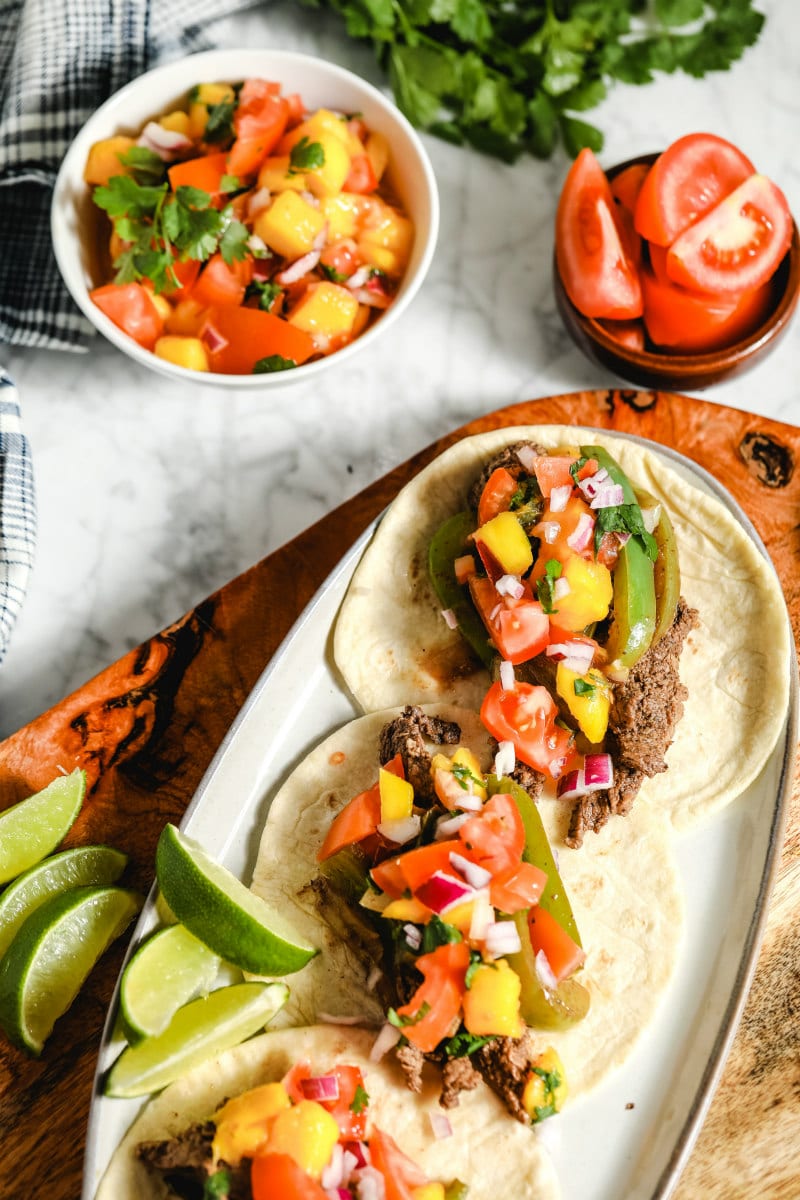
What are the best kind of tortillas to use for fajitas?
Flour tortillas are the typical type of tortilla to use for eating your fajitas. Place them in some damp paper towels and microwave for a minute or so. Alternately, you can wrap them in foil and warm them in the oven.
Corn tortillas may be used, if you prefer them (or if you’re gluten free). I like to fry my corn tortillas. Just heat up some canola or vegetable oil in a pan and drop a tortilla in for 5 to 7 seconds to fry. Remove to paper towels to drain excess oil from the tortilla.
If you’re counting calories you can use low carb flour tortillas which are almost always my choice. And, if you happen to be following the Weight Watchers WW plan, you’ll find a link to the WW Points on the recipe card at the end of this post.
Additional fixing suggestions:
My family loves to add cheese, sour cream and guacamole to beef fajitas. You can also add salsa, cilantro or fresh avocado slices!
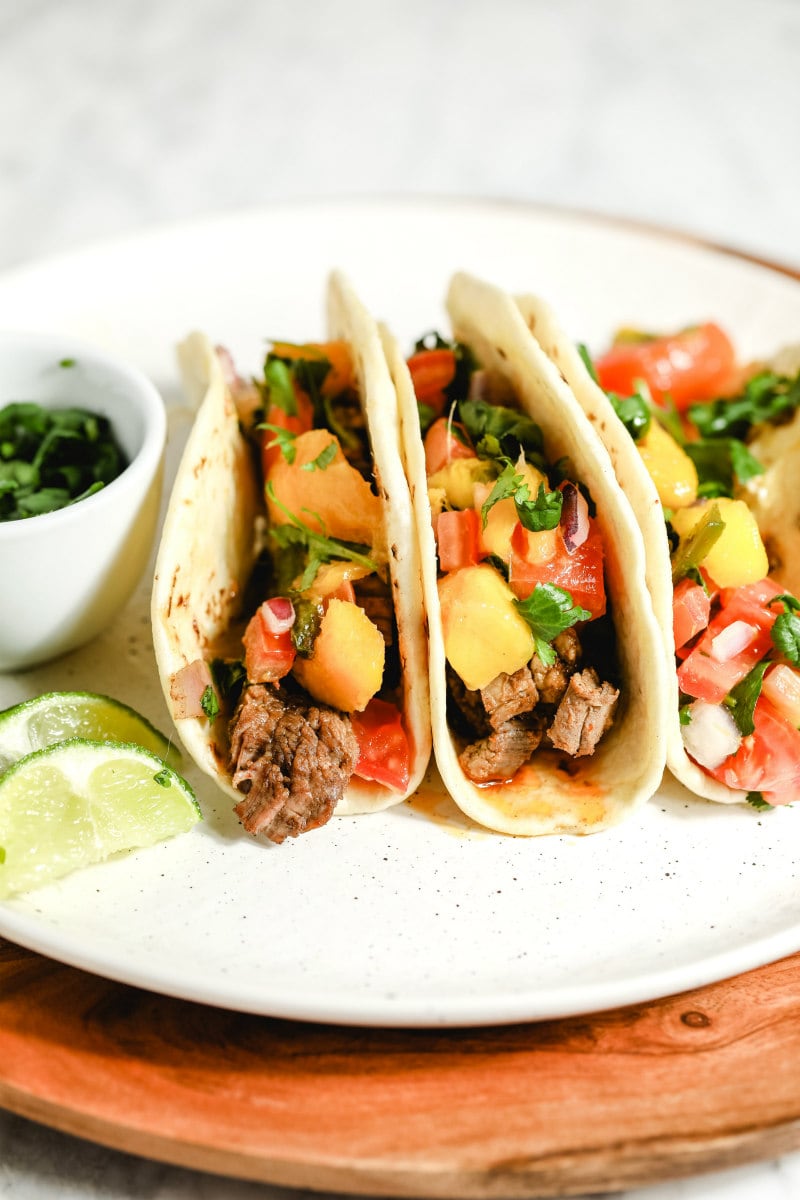
Try these fabulous Beef Fajitas with Mango Salsa for dinner, and let me know what you think. Enjoy!
Here are a few more Mexican dinner recipes you might like to try:
- Flank Steak Tacos
- Carne Asada
- Grilled Chicken Burrito Bowls
- Easy Beef Enchiladas
- White Chicken Enchiladas
- Slow Cooker Carnitas Guacamole and Rice Burritos
- Chile Relleno Recipe
- Roasted Vegetable and Black Bean Tacos
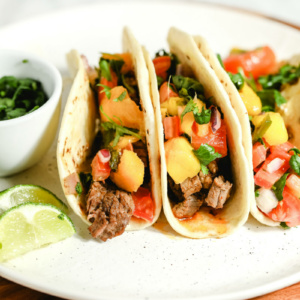
Beef Fajitas with Mango Salsa
Ingredients
SALSA:
- 1 large mango, peeled and chopped
- 1 large tomato, chopped
- 2 tablespoons finely chopped red onion
- 1 tablespoon chopped fresh cilantro
- ¼ teaspoon salt
- 1 tablespoon freshly squeezed lime juice
FAJITAS:
- 1 pound flank steak, cut into thin strips
- 2 teaspoons chili powder
- 1 teaspoon ground coriander
- ½ teaspoon dried oregano
- 2 teaspoons vegetable or canola oil
- 1 cup thinly sliced red onion
- 1 medium green bell pepper, seeded and thinly sliced
- 1 medium jalapeno pepper, seeded and thinly sliced
- 2 teaspoons Worcestershire sauce
- ¾ teaspoon salt
- 1 medium tomato, cut into 8 wedges
- 8 taco-sized flour tortillas
- 8 lime wedges
Instructions
PREPARE THE SALSA:
- Combine the salsa ingredients in a bowl; toss to combine and set the salsa aside.
PREPARE THE FAJITAS:
- In a separate bowl, combine the steak, chili powder, coriander and oregano; turn to coat the meat. Heat the oil in a large nonstick skillet over medium-high heat. Add the steak, onion, bell pepper, jalapeño, Worcestershire sauce and salt. Cook, stirring occasionally, 6 minutes. Remove from the heat.
- Warm the tortillas in the oven or the microwave. Scoop some of the beef mixture in a strip down the center of each tortilla. Top with mango salsa and a tomato slice. Serve with a wedge of lime for squeezing. Add additional toppings such as sour cream, cheese and guacamole, as desired.
Notes
- For those counting WW Points, you'll want to use lean flank steak and low carb flour tortillas.
Nutrition
Nutrition information is automatically calculated, so should only be used as an approximation.
